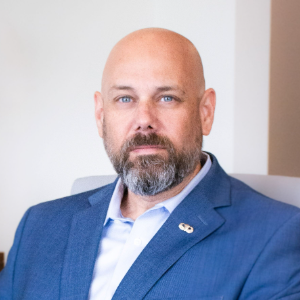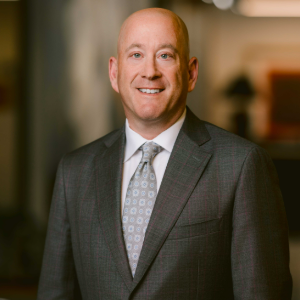Kicked Out of School: Charter Schools and Expulsion Law
November 4, 2014 | Sherrard Roe Blog I Ryan T. Holt
Hybrid creatures have a long history. In Greek mythology, there was Pegasus, a horse with the wings of a bird that was said to create springs where his feet touched the ground. Another such creature is the griffin, which has the body and legs of a lion and head of an eagle. Or the Chimera, which Homer described as “a thing of immortal make, not human, lion-fronted and snake behind, a goat in the middle, and snorting out the breath of the terrible flame of bright fire.”
Although not breathing fire, charter schools are also a hybrid. They are part government. They owe their existence to state law, must be authorized by government to exist, and are held accountable by government to their charter. Their lifeblood is government revenues. They are arguably a state actor and, as such, must provide due process, not establish religion, and avoid unreasonable searches. Like government, charter schools may be subject to open-records requests. On top of it all, charter schools are heavily regulated by local, state, and federal law, including technical rules for special education and confidentiality of student records.
Yet charter schools are also very much private entities. Although they can seek guidance from government advisors, they are ultimately their own sovereign. In Tennessee, charter schools must be run by nonprofits and are typically set up as 501(c)(3) organizations. They are governed by private boards of directors. Like a private business, each charter school “calls the shots” as to how to reach its goals. Due to the growth of charter schools in Metro Nashville, many charter schools are startups and face the challenges of any startup, including navigating new legal issues.
One such issue is student expulsion. In my experience, charter-school leaders believe every student can succeed in their system, so expulsion is a last resort. However, it sometimes may be necessary. Expulsion is emotionally taxing. It can also be a legal minefield. Charter schools must provide due process, satisfy other state requirements, comply with their own policies, communicate with the school district, and consider special-education rules.
Federal due process. The due process standard in the Sixth Circuit was established in Newsome v. Batavia Local School District, 842 F.2d 920 (6th Cir. 1988), where the court held that “students facing expulsion have the right to a hearing before an impartial trier of fact, but do not have the right to a full-blown administrative appellate process.” Below is a summary of the rules from Newsome and other federal cases:
Due process gives students the following rights:
- Hearing before impartial trier of fact;
- Have evidence explained; and
- Have the opportunity to rebut evidence.
Due process does not give such students the right to:
- Know the identity of the student witnesses;
- Cross-examine students;
- Cross-examine school administrators; or
- Review written statements that are not relied upon at the hearing.
Tennessee law. Expulsions are governed by Tenn. Code Ann § 49-6-3401, which applies to “any public school in this state.” The statute requires that the student be afforded a hearing, that the student receive written notice of the time and place of the hearing, and that the decisionmaker provide a written record of the facts and reasons for its decision. The statute is silent as to the process during the hearing. The hearing must occur within ten days of the beginning of any suspension pending expulsion. Tenn. Code Ann. § 49-6-3401(c)(4)(D).
School policy. In addition to complying with the above requirements, charter schools must ensure that they abide by their own policies for student discipline and expulsion. Failure to comply with a policy could serve as grounds for a challenge. Expulsion policies should be designed not only to comply with all legal requirements but also to ensure a fair and smooth process before, during, and after the expulsion hearing.
Communicate with school district. The charter school should communicate with the school district about the potential expulsion. For certain offenses, expulsion from the charter school may prevent the student from attending his regularly zoned district school as well. Regardless of whether or not the potential expulsion involves such an offense, the student may be returning to the school district system, so it is important that the school district is aware.
Special education. If the student has already been identified as having special needs (for example, has an IEP or 504 plan), or if the student’s family asserts for the first time during disciplinary proceedings that the student may have special needs, a slew of other issues arise under the Individuals with Disabilities Education Act (IDEA) and other applicable law. These issues are technical and important but outside the scope of this blog post.
With these rules in mind, perhaps charter schools are like the sphinx. Not only a hybrid, but also presenting a series of legal riddles. One must think carefully to crack the code.


























